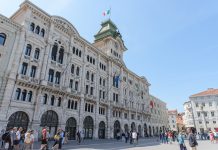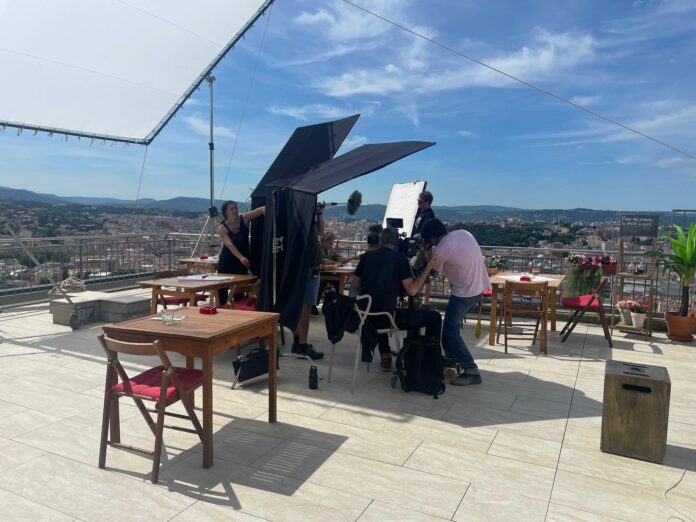by InTrieste
Friuli Venezia Giulia is continuing to establish itself as a favored location for international filmmakers. Two films shot in the region have been selected for the 31st Sarajevo Film Festival, one of the most prominent cultural events in Southeast Europe.
Little Trouble Girls (Kaj ti je dekle) by Slovenian director Urška Djukić will compete in the Focus Programme, with a screening set for August 20. Il bianco si lava a novanta (Wash at Ninety / Belo se pere na devetdeset), directed by Marko Nabersnik, will appear in the Open Air Premiere Programme on August 21. Both productions were filmed in Friuli Venezia Giulia with the support of the FVG Film Commission – PromoTurismoFVG.
Coming-of-Age in the Borderlands
Little Trouble Girls, Djukić’s debut feature, premiered earlier this year at the Berlinale. Shot during the summer of 2023 in Cividale del Friuli and the Natisone Valleys, the film uses historic and natural settings such as the Monastero di Santa Maria in Valle, the Ponte del Diavolo, and the cave-church of San Giovanni d’Antro.
A co-production involving Slovenia, Italy, Croatia, Serbia, France, and RTV Slovenija, the film is also backed by GO!2025 Nova Gorica–Gorizia European Capital of Culture, Eurimages, Italy’s Ministry of Culture, and the Friuli Venezia Giulia Audiovisual Fund. Italian distribution will be handled by Tucker Film.
The story follows Lucia, a reserved 16-year-old navigating new emotions during a choral retreat at her Catholic school. Through this intimate narrative, the film explores themes of identity, desire, and adolescent self-discovery.
A Literary Adaptation Across Decades
Nabersnik’s Il bianco si lava a novanta adapts the acclaimed autobiographical novel by Bronja Žakelj, published in Italy by Bottega Errante. The film spans three decades, weaving together personal and collective histories from the 1980s to the early 2000s, against the backdrop of the fall of the Berlin Wall and the dissolution of Yugoslavia.
Filming took place in Trieste in June 2024, followed by additional shoots in Udine, Povoletto, Torviscosa, and Gonars that September. The project is an international co-production involving six European countries, with the Friuli-based Quasar Film serving as a lead partner. Local crews contributed extensively to production and post-production, with Trieste-born composer Luca Ciut providing the score.
A Growing Film Hub
The inclusion of both films in Sarajevo highlights the increasing role of Friuli Venezia Giulia as a hub for cinematic storytelling. Through financial and logistical support, the FVG Film Commission has helped attract filmmakers interested in the region’s distinctive landscapes and layered cultural history, while reinforcing its place on the international festival circuit.






























